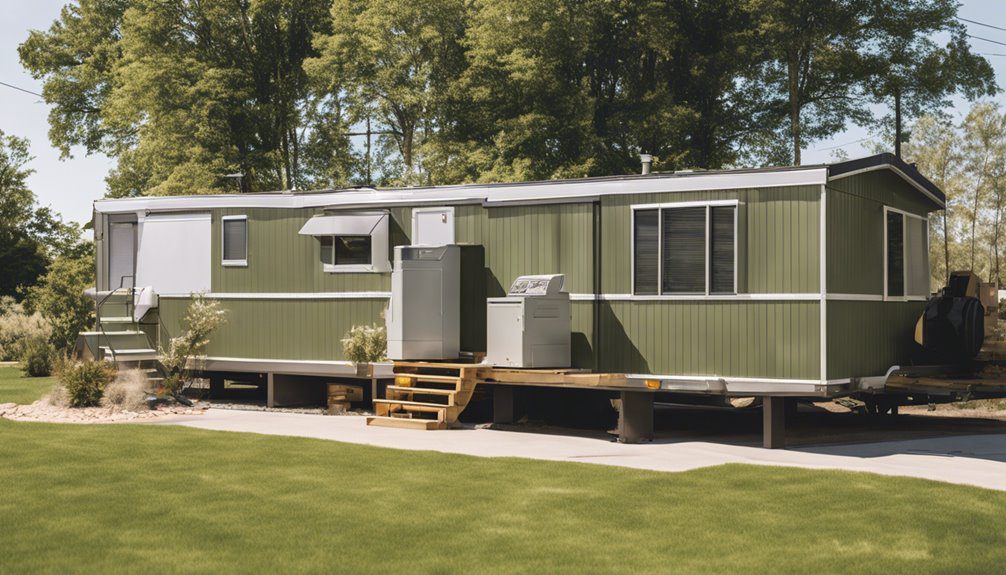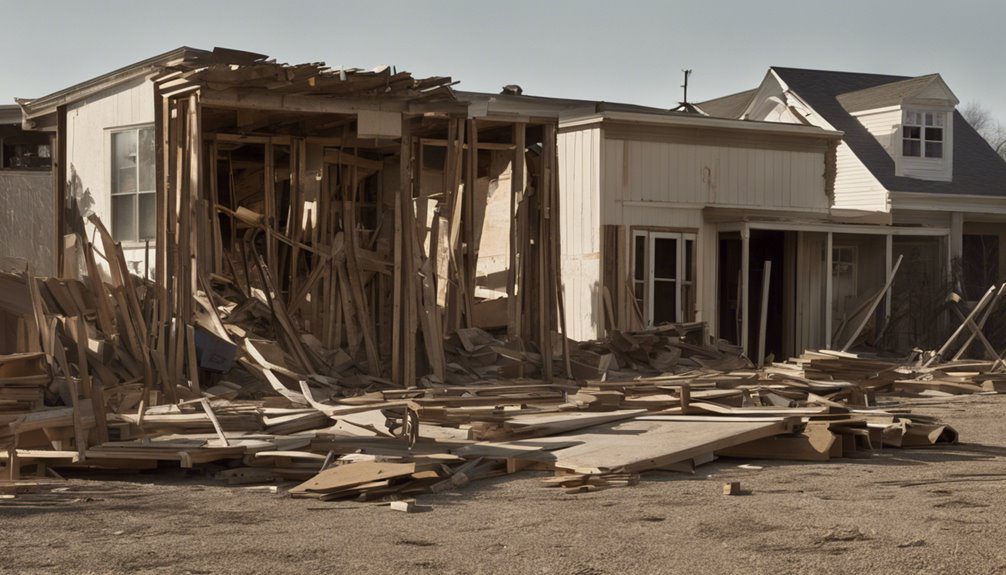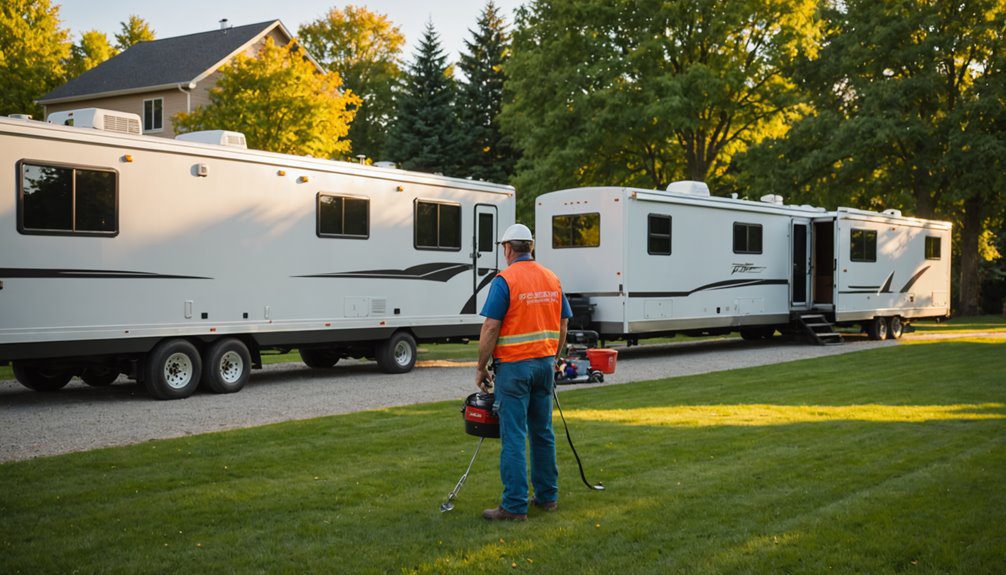If you're considering becoming a manufactured home installer in South Carolina, you might want to familiarize yourself with the $5,000 bond requirement. This bond acts as a crucial safeguard for homeowners, ensuring that installers are held accountable for their work. However, understanding how this bond impacts your business and the overall installation process is essential. What might surprise you is how this seemingly simple requirement can influence your reputation and client relationships. Let's explore the details behind this bond and what it means for you and your potential clients.
Understanding the Bond Requirement

When you're stepping into the world of manufactured home installation, understanding the bond requirement is crucial.
You'll need to familiarize yourself with the specifics of the bond to ensure you meet state regulations and protect yourself and your clients. A bond serves as a safety net, providing financial assurance that you'll adhere to local laws and industry standards.
In your state, a ,000 bond is common, but requirements can vary. It's essential to check the specific regulations governing manufactured home installation in your area.
This bond often acts as a guarantee that you'll fulfill your contractual obligations and rectify any issues that may arise during the installation process. Additionally, obtaining this bond is essential for ensuring compliance with consumer protection laws, which helps maintain your reputation in the industry.
To obtain this bond, you'll typically need to work with a surety company, which will assess your creditworthiness and experience.
They'll provide you with the necessary paperwork to get started. Don't overlook this step—having the bond in place not only builds trust with your clients but also positions you as a responsible installer in the industry.
Staying informed about the bond requirements will help you navigate your way through the installation process smoothly.
Purpose of the ,000 Bond
The $5,000 bond serves multiple important purposes in the realm of manufactured home installation. First and foremost, it acts as a financial safety net for consumers, ensuring that they're protected against any potential damages or losses caused by the installer's negligence. If you fail to meet the standards or obligations set forth in your work, the bond can cover the costs incurred by the homeowner, fostering trust in your services.
Additionally, the bond helps maintain professionalism within the industry. By requiring installers to secure a bond, the state ensures that you're committed to adhering to regulations and best practices. This not only enhances your credibility but also helps elevate the overall quality of manufactured home installations.
Moreover, having a bond can give you a competitive edge. Homeowners often prefer working with bonded installers because it signifies a level of responsibility and reliability. They feel more secure knowing that there's a financial backup plan in place.
In essence, the $5,000 bond isn't just a requirement; it's an essential tool that protects both you and your clients, promoting a trustworthy relationship in the manufactured home industry.
Application Process for Installers

Starting the application process for becoming a licensed manufactured home installer can seem daunting, but it's straightforward if you follow the necessary steps.
First, you'll need to gather the required documentation, including proof of your experience in the field and any relevant training certificates. Check your state's specific requirements, as they can vary.
Next, complete the application form provided by your state's licensing board. Make sure to fill out all sections accurately—any missing information could delay your approval.
Once you've submitted your application, you'll typically need to pay a fee. Don't forget to review the fee schedule to ensure you include the correct payment amount.
After that, you may need to pass an exam to demonstrate your knowledge and skills in manufactured home installation. Prepare thoroughly for this test, as it's crucial for your licensing.
Benefits for Homeowners
Hiring a licensed manufactured home installer offers homeowners peace of mind, knowing that their home is being set up correctly and safely. When you choose a licensed professional, you're ensuring that your home meets all local codes and regulations, which can save you from potential headaches down the line.
A licensed installer brings expertise and experience to the table, making the installation process smoother and more efficient. They understand the intricacies of the setup, from the foundation to utility connections, minimizing the risk of errors that could lead to costly repairs.
Additionally, many licensed installers carry insurance and bonds, which protect you in case of any mishaps during the installation process. This added layer of security means you won't have to bear the financial burden of unforeseen issues.
Moreover, working with a licensed installer can enhance your home's value. Proper installation not only ensures longevity but also contributes to the overall appeal of your property. Furthermore, hiring a licensed professional means you're benefiting from their compliance with local regulations, which protects your investment.
In short, hiring a licensed manufactured home installer means you're investing in quality workmanship and safeguarding your investment, allowing you to enjoy your new home with confidence.
Consequences of Non-Compliance

Failing to comply with local regulations when installing a manufactured home can lead to significant consequences. You could face hefty fines that not only hit your wallet but also tarnish your reputation as an installer.
Local authorities might revoke your license, making it impossible for you to work in the area again.
Moreover, if you skip safety standards or installation guidelines, you might expose homeowners to dangerous living conditions. This could result in lawsuits against you, leading to costly legal battles and potential financial ruin.
Your bond could also be called into question. If you're found non-compliant, homeowners might file claims against your $5,000 bond, impacting your ability to secure future contracts.
Even if you manage to avoid legal action, the financial strain of penalties can deter potential clients.
In the long run, non-compliance not only affects your current job but also your future opportunities in the industry. By adhering to regulations, you protect your business and your clients, ensuring a successful career in manufactured home installation. Additionally, understanding license and permit bonds is crucial for fulfilling your legal obligations and maintaining your standing in the community.
Conclusion
In summary, securing a $5,000 bond as a manufactured home installer in South Carolina is crucial for your business and your clients. This bond not only protects homeowners from potential negligence but also boosts your credibility and trustworthiness in the market. By complying with this requirement, you're safeguarding your reputation and ensuring a smooth installation process. Don't overlook the importance of this bond—it's a smart investment for your future and the satisfaction of those you serve.


